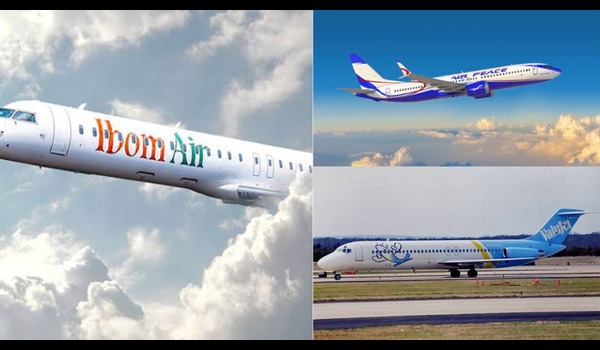Recommending kinetic approach to manage airport infractions; spotlighting recent incidences involving air travelers and airlines operating local routes in Nigeria
The Nigerian domestic aviation industry has in recent weeks been in the glare of public scrutiny, not because of operational feats, but for the wrong reasons bothering on high-profile infractions by air travelers and collision with airline staff and airport security. Episodes ranging from outright defiance of safety protocols to dramatic altercations on the tarmac have underscored the urgent need for stronger, swifter crisis management strategy for air carriers and airport authorities. In a sector where air carriers are safety-critical milieus and public confidence is fragile; each incident carries reputational weight. Addressing these challenges therefore calls for a kinetic approach, an operational mindset in which responses are deliberate, coordinated, quick and effective in both preventive and reactive actions to nip in the board potential breaches and where crisis erupt, deescalating and restoring order in real time.
The concept of kinetic approach often associated with security and emergency response tactics, is built on the principle of swift and decisive actions that pre-empts further disruption. In aviation sphere, it should not be about forceful suppression but preparedness and speed. A kinetic crisis response system in aviation community behooves airlines, security agencies, regulators and other stakeholders to clearly rehearse protocols for dealing with infringements from the moment a passenger boards to landing when passengers disembark from the aircraft. This stance aims to ensure that potential disruptions are contained before they become operational hazards thus protecting passengers onboard and integrity of the aviation industry.
Recent incidents involving two individuals, yet a third earlier, have put Nigeria’s aviation industry under scrutiny and exposed the consequences of inaction or slow response to addressing breaches. On August 10 2025, an Ibom Air flight from Uyo to Lagos became chaotic when a passenger, Comfort Emmanson was alleged to have refused to switch off her mobile phone before take-off of the airplane. What began as a routine safety instruction escalated into a verbal dispute, resulting in an assumed assault on a flight attendant, and wielding a fire extinguisher by the aggressor in a threatening way. Security officials according to reports eventually separated her from other passengers in Lagos after landing. She was eventually remanded in Kirikiri Prison. Ibom Air and the Airline Operators of Nigeria banned her for life though later reversed by court decision. But the sequence of events that played out thereafter as trending on mainstream and social media has triggered discussions about passenger’s right, crew authority, and the appropriate punitive measures to adopt.
About a fortnight earlier, a Fuji musician Wasiu Ayinde Marshal aka Kwam 1 boarding a Valuejet aircraft from Nnamdi Azikiwe International Airport, Abuja was accused of refusing a security check of a flask and in the ensuing brawl, was reported to have poured its content on a security staff. Again, he was said to have obstructed the airplane on the taxiway after he was denied boarding. Both instances resulted in temporary or permanent flight bans, public apologies, and legal fireworks.
Recall in June this year, it was reported that Senator Adams Oshiomhole who arrived late for his Lagos-Abuja flight and was denied boarding by an Air Peace staff, assaulted the fellow and climbed a baggage counter blocking the passage. But no formal sanction or punishment whatsoever was imposed on him.
Some legal luminaries have pointed out that Airline Operators of Nigeria-AON lacks authority to impose lifetime bans, arguing that only regulators or courts can do so.
The different strokes for different folks’ treatment meted on the three individuals has drawn the ire of Nigerians and lawyers say it violates the rule of law. A human rights lawyer Ademiluyi puts it succinctly: “If someone can stop a plane with their bare hands and be appointed a brand ambassador, it sends the wrong signal.”
These incidences have exposed how vulnerable Nigeria’s aviation industry is and as well, reveals the deep institutional weaknesses compounded by the absence of a crisis management playbook for the industry.
In each of these scenarios, the shortcomings were not limited to the actions of the individuals involved. Delays in intervention, inconsistent enforcement of rules, and poorly coordinated communication between ground staff, airline management, and regulators abetted the escalation in ways that otherwise could have been avoided. A kinetic approach would entail training of all casts- personnel, security, crew, and operational staff to empowered them to function concordantly to attain global aviation standard. These lapses in aviation space can indeed jeopardize safety and erode public trust.
The challenge is somewhat peculiar though, given Nigeria’s unique aviation environment where domestic routes often operate under tight schedules, with some of the airports heavily trafficked and often than not, under-funded. Cultural factors like indulging celebrities and fear of public backlash can make it more difficult for staff to apply rules uniformly. Additionally, regulatory bodies- Nigerian Civil Aviation Authority (NCAA) and Federal Airports Authority of Nigeria (FAAN) have different sets of rules for oversighting operations of airlines at the airports. And without a harmonized crisis protocol order, responses could be chaotic and disruptive thereby confusing passengers and leaving staff vulnerable to indictments over manna of handling individual incidents.
Implementing a kinetic model would encompass several layers of reform. First, crisis scenarios must be mapped in advance, with clear step-by-step actions for crew and security personnel to follow whenever infractions occur. These should include pre-boarding checks, in-flight behavioral monitoring, and rapid on-ground de-escalation processes. Second, airlines and regulators should invest in joint simulation exercises, ensuring that everyone along the chain from the cabin crew to the control tower, knows their role when a budding breach begins to unfold. Third, penalties for infringements should be codified and published so that all passengers are aware beforehand of the consequences before boarding. Transparency in enforcement is essential for deterring misconduct and protecting airline staff from public criticism when they act within recognized guidelines.
Equally recommended as panacea to receding occurrences of this kind of incidences is incorporating public relations measures in managing the crisis. In today’s hyper-connected media landscape, news of an onboard dispute can go viral before the aircraft lands. A kinetic approach of conflict resolution should engage as well post-incident communication where professional communicators appropriately package official statements and release same swiftly and consistently over a period. This tactic helps to counter misinformation, reassure the travelling public, and demonstrate that safety and dignity are protected without bias. In the case of the Ibom Air and Kwam 1 incidents, much of the public anger and confusion stemmed from incoherent and conflicting narratives, something that ordinarily could have been avoided through coordinated and timely communication from the airlines involved.
But beyond shortcoming in operation and communication, there is need to address the main causes that make a passenger to transgress. Some of the infringements arises from frustration over delays, unaware or insufficient information about aviation safety protocols. Passenger education campaigns should be integrated into ticketing outlets – online and bouts in airports, boarding announcements, and in-flight materials, can help reduce incidences of this kind.
Again, investment in staff welfare and training can reduce the likelihood of crew members responding erratically under pressure, while at the same time allowing them to fall back on well-rehearsed crisis management playbook.
Nigeria’s aviation sector has much to gain from this shift. A reputation for order, fairness, and professionalism will not only reassure domestic travelers but also enhance the appeal of Nigerian airlines in the eyes of international partners and investors. At a time when competition is intensifying and margins are tight, the ability to manage crises quickly and competently can make a significant difference. Furthermore, by demonstrating that infractions are dealt with in real time, firmly and fairly, irrespective of culprit’s profile-high or low, the industry would have send a powerful message about its commitment to safety and equality in its operations.
However, the road to this transformation will require commitment from all stakeholders. Airlines must be willing to align their internal procedures with national crisis management guidelines. Regulators must not shy away from enforcing penalties, even in politically sensitive cases. Airport authorities must ensure that security personnel are adequately trained and equipped to intervene appropriately and effectively adhering to set rules and guidelines. Prospective passengers should recognize their role in preserving the safety and dignity of air travel.
Ultimately, adopting a kinetic approach is more than applying brute action to mitigate a chaotic incident. It is about redefining the mindset and culture of Nigerian air travelers. It indicates that safety is non-negotiable, that disruptions will be met with swift and appropriate action, and that every journey is a shared responsibility. By learning from recent infractions and committing to proactive, unified response framework, the domestic aviation sector can turn the moment of public embarrassment into a long-term gain for operational excellence and passenger confidence.
By: Grateful Ogunjebe (Stringer)



